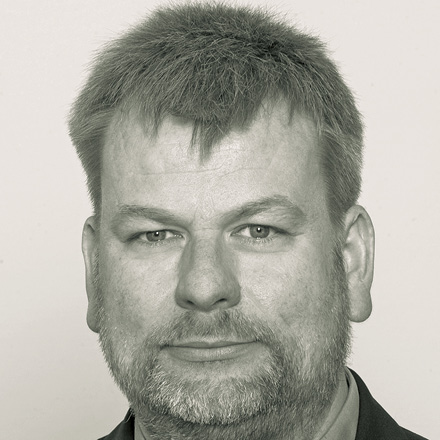Civil society
Diminished civic equality

In 2015, Mark Zuckerberg, the founder of Facebook, and Priscilla Chan, his wife, have pledged to donate most of their wealth to worthy causes. At the time, their fortune amounted to $ 45 billion. It is likely to grow considerably, given how popular Facebook is. The couple has pledged to give away 99 %. They own more assets than the bottom fifth of American households. Zuckerberg and Chan say they want to “promote equality” so everyone has opportunities “regardless of nation, families or circumstances they are born into”.
Another prominent American philanthropist is Michael Bloomberg, the founder of the financial-data company Bloomberg and former mayor of New York City. His wealth is about $ 40 billion. He has said he will spend the bulk of his fortune to influence government policies in the USA and around the world. Issues he is interested in include fighting climate change, reducing traffic deaths in poor countries and stemming overfishing.
Bill Gates, Warren Buffett and George Soros are yet more billionaires engaged in philanthropy. Gates and Buffet are funding the Bill & Melinda Gates Foundation, whereas George Soros’ vehicle is the Open Society Foundations. The individuals involved are leaving their mark on global affairs.
The examples and figures mentioned here are taken from David Callahan’s book “The givers”. It is full of anecdotes about rich American people trying to change the world – or at least the USA or perhaps only their home town. Anecdotal evidence is all Callahan can offer, and he is not to be blamed for it. The poor are well researched, but the mega-rich have always guarded their privacy.
Callahan offers a broad assessment of what the growing relevance of philanthropists means for society. He makes it very clear that this trend results from growing inequality. A few “super citizens”, as he called them, have the financial clout to dominate civil society, whereas masses of other citizens feel increasingly disenfranchised and are withdrawing from public life.
In many countries, organisations that depend on mass-membership have been losing influence, and the share of people who take part in elections is decreasing. At the same time, gaps between the haves and have-nots are widening.
Extremely rich people who start foundations or contribute their wealth to them have considerable political influence, Callahan argues. One way of putting pressure on governments’ decision-making is to offer to co-finance projects under the condition that public budgets contribute money too. Callahan states that elected governments should have the resources they need to provide and protect public goods, and when they do not, the question arises whether the rich should not be taxed more. On the other hand, he sees public budgets in the US squeezed by debt and future pension payments.
Mega-donors are leaving their mark on issues from urban planning to foreign policy. Local governments appreciate it when philanthropists co-fund public parks and accept the donors’ ideas of where those parks are set up or redeveloped, while think tanks that depend on private money get involved in debates on how to deal with Iran, the global environment or trade.
Right-wing think tanks
Mega-donors do not always support causes that serve the common good. Callahan reports that billionaires such as Robert Mercer or Charles and Robert Koch are known to fund conservative think tanks which have histories of climate change denial and promoting an anti-tax agenda. According to Callahan, the hugely influential American Enterprise Institute (AEI) had an annual budget of $ 55 million in 2015, which it had collected as tax-free donations from a mere 1,500 persons.
Callahan states that he worries more about inequality in public life than about all philanthropists supporting the same agenda. He sees a great diversity of mega-donors who support a great diversity of causes. However, he does emphasise that all mega-donors tend to be economically conservative. After all, the system has worked for them.
The author acknowledges the history of America’s super-rich committing their wealth to philanthropy, but warns that the impact of what happening now will prove more forceful than established grant-institutions such as the Ford Foundation, the Rockefeller Foundation or the Carnegie Corporation. These grant-making bureaucracies tend to support many different causes, and are financially conservative, as they are designed to last forever. In contrast, many of todays super-rich want to spend all their money in their lifetime. And they are focussing on specific issues.
Callahan only deals in passing with how the philanthropists accumulated their wealth. Some have inherited it. In other cases, business models were controversial, to put it mildly. Facebook, for example, is known for sophisticated tax-avoidance schemes and doing little to stem the spread of fake news. Bill Gates’ company Microsoft dominated the global IT business in the 1990s and its grip on the market only loosened after complex anti-trust proceedings in the USA and the EU. Financial-sector titans were not made to pay for the global financial crisis that had Wall Street as its epicentre in 2008. The Koch brothers’ wealth stems from fossil energy.
Philanthropic foundations are accountable only to themselves, as Callahan stresses. They set their own agendas and have the means to pursue them forcefully. They are in a position to take risks, test new approaches and scale up what works. Callahan therefore considers philanthropy to be society’s risk capita.
Callahan sees a need to regulate philanthropy more stringently. For instance, he wants foundations to disclose all of the grants they make. Otherwise the public cannot understand what policies they are promoting. Moreover, he wants legislators to reconsider what kind of spending should be tax-exempted so efforts to manipulate public policy are not subsidised by governments. In his eyes, moreover, philanthropists would be well advised to publish information pro-actively in order to boost their legitimacy.
Reference
Callahan, D., 2017: The givers. Wealth, power and philanthropy in a new gilded age. New York: Knopf.













